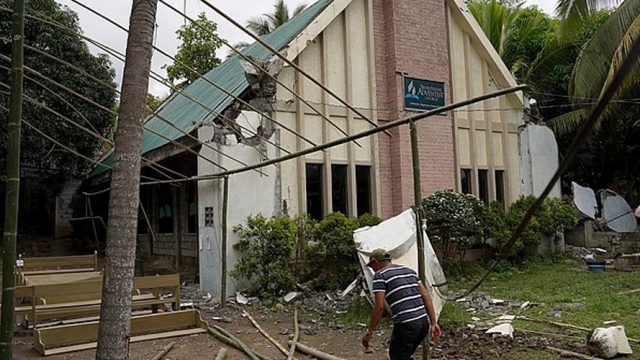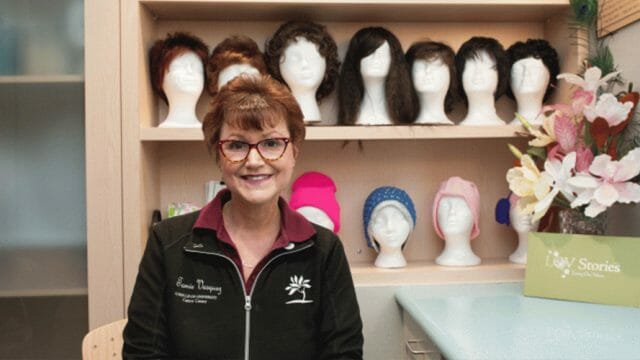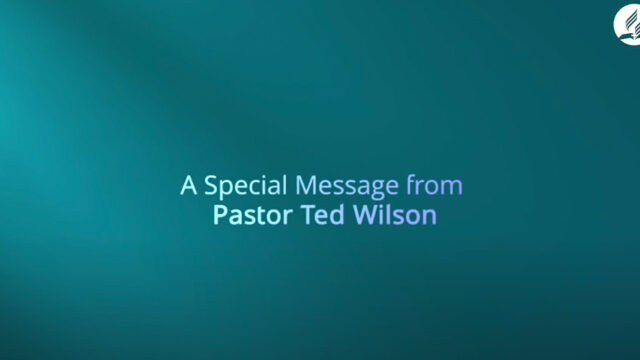God’s plan for restoration

One of the most powerful verses in Scripture is Jeremiah 33:6: “But I will most surely heal the wounds of this city and restore it and its people to health” (NET).* Healing and restoration are a part of God’s purpose for His children. We don’t always recognize we need it, however. Some wounds are inherited, while others are cultivated over time. Some feel deep and untreatable, leaving us to carry grief, regret, guilt, and shame. Somehow God’s hand reaches these deep caverns and leads us to a place of freedom. I had one of those moments many years ago while attending a suicide-prevention training.
Being Vulnerable
I was a young adult with a full-time job and in school again part-time at the local community college. I was trying to recover and put my life back together from a traumatic experience a few years prior. A friend invited me to join her in the evenings as part of a team of suicide-prevention specialists answering phone calls from people contemplating or threatening suicide.
I had always wanted to help people, and this would be a start. Before we began answering phones, we had an extensive training session. When my friend and I arrived at the community clinic sponsoring the training and providing space for the call center, it was packed. People from all over had come to be trained as volunteers for this important work. Suicide was touching so many, and something needed to be done to help. It was a sobering reality check. I wasn’t sure what to expect, but I knew it would be a learning experience.
Once we had a bit of training, we were placed into groups of about seven or eight and participated in a type of role-playing. The groups became animated, voices abuzz all around the room. These circles of strangers coming together would eventually become our safe spaces. We were instructed to share something about ourselves that no one knew or that we had never discussed with another person. At first, everyone was a bit hesitant. We didn’t know each other, and we were getting ready to divulge some very intimate or deep information that perhaps we had determined never to tell anyone.
I can’t say we were enthused, but once someone began, the momentum picked up. Some folks seemed a bit more at ease with sharing than others. There is something about the dynamics when one person takes the plunge: it opens the sea of possibilities in transparency that I believe everyone yearns for. Soon more and more people began to share. We witnessed those around us experiencing their burdens being lifted.
This was supposed to be about us learning how to help others, not us coming to get help. We are all fine, I thought. It’s the folks who will be calling in to the hotline that need help. This isn’t for us, is it? It was almost my turn. I watched and listened intently, determined that when it was my time to speak, I would just share something superficial. They won’t even know the difference, I thought. I mean, they don’t know me, so who cares? Plus, I don’t know them, either, and what good would it do for me to share here, anyway . . . Is this necessary? I wondered. Before I could rationalize my way through what I would say, it was my turn. I sat there for a moment, then decided, You’ve come here, and you’ve heard all these folks share from their heart. Don’t cheat; be real, be honest.
My heart was beating fast, and somehow I knew this was going to be a pivotal moment for me, one that would change my life forever. It wasn’t just about the possibility of talking suicidal people down from an emotional ledge. It was also about taking a leap of faith when it came to walking through my own door of freedom, one that I had never imagined could be opened.
I would be taking a leap into a life in which I told the truth first to myself and then to others. That wasn’t my norm. What better place to tell the truth for the first time about myself, my state of mind, and my life than with people I didn’t know and who had no stake in what I would say?
It wasn’t until that thought hit me that I finally realized this was the chance of a lifetime. I had a perfect opportunity to just say it without fear of repercussions. I took the first step forward in my choice to heal. “My name is Tammy. I was molested, and experienced physical and emotional trauma.” It was the first time I had said it out loud in my entire life. And you know what? It felt good.
Take the First Step
That night I realized those calling the hotline would be carrying grief, regret, guilt, and shame, as I had all those years. But this wasn’t a new thing. God was the originator of the first “suicide-prevention hotline,” found in James 5:16: “Confess your faults one to another, and pray one for another, that ye may be healed” (KJV). Healing is an individual and corporate event, creating cycles of growth. Grief, regret, guilt, and shame are destroyed in this kind of environment. The enemy hates when we acknowledge the sins we’ve committed, as well as those committed against us. If you’re carrying a similar heavy weight, take the first step. Pray and ask God to lead you; talk to your pastor, or a trusted family or church member; text/call someone; talk to a mental health professional or licensed therapist and walk through the door of freedom. Maybe you’ll be the one to begin the cycle of healing where you are.
* Scripture quotations credited to NET are from the New English Translation Bible, copyright © 1996-2023 by Biblical Studies Press, L.L.C. All rights reserved.









